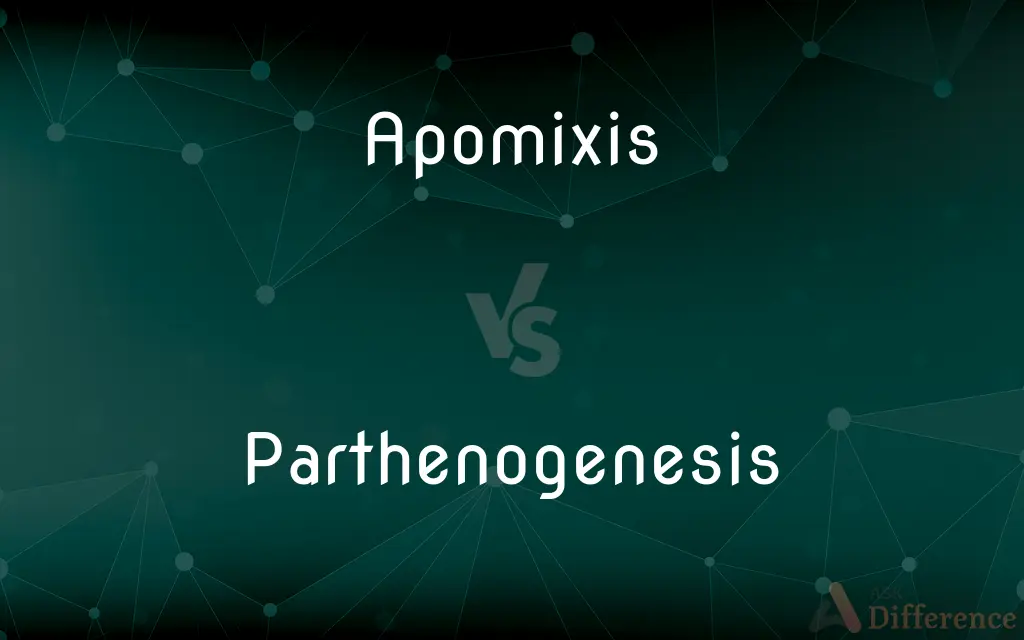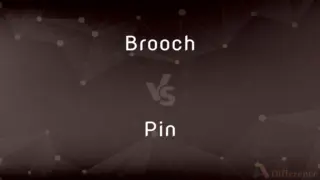Apomixis vs. Parthenogenesis — What's the Difference?

Difference Between Apomixis and Parthenogenesis
ADVERTISEMENT
Compare with Definitions
Apomixis
In botany, apomixis is asexual reproduction without fertilization. Its etymology is Greek for "away from" + "mixing".
Parthenogenesis
Parthenogenesis (; from the Greek παρθένος, parthénos, 'virgin' + γένεσις, génesis, 'creation') is a natural form of asexual reproduction in which growth and development of embryos occur without fertilization by sperm. In animals, parthenogenesis means development of an embryo from an unfertilized egg cell.
Apomixis
The development of an embryo without the occurrence of fertilization, especially in plants.
Parthenogenesis
A form of reproduction in which an unfertilized egg develops into a new individual, occurring commonly among insects and certain other arthropods.
Apomixis
(botany) Plant reproduction without fertilization.
ADVERTISEMENT
Parthenogenesis
The artificial activation of an unfertilized usually mammalian egg, resulting in an embryolike cell cluster from which stem cells can be harvested.
Apomixis
(botany) Plant reproduction without fertilization, meiosis, or the production of gametes.
Parthenogenesis
(biology) Referring to various aspects of asexual reproduction:
Apomixis
(zoology) Animal reproduction in which the egg cell does not undergo meiosis or fertilization.
Parthenogenesis
(An instance of) reproduction by the development of a single gamete (an ovum or ovule) without fertilisation by a gamete of the opposite sex; compare metagenesis, heterogamy.
Apomixis
Any of several kinds of reproduction without fertilization
Parthenogenesis
Asexual reproduction in toto; agamogenesis.
Parthenogenesis
Figurative uses of the biological senses
Parthenogenesis
(theology) Virgin birth, in reference to the Virgin Mary and Jesus Christ.
Parthenogenesis
The production of new individuals from virgin females by means of ova which have the power of developing without the intervention of the male element; the production, without fertilization, of cells capable of germination. It is one of the phenomena of alternate generation. Cf. Heterogamy, and Metagenesis.
Parthenogenesis
The production of seed without fertilization, believed to occur through the nonsexual formation of an embryo extraneous to the embryonic vesicle.
Parthenogenesis
Human conception without fertilization by a man
Parthenogenesis
Process in which an unfertilized egg develops into a new individual; common among insects and some other arthropods
Share Your Discovery

Previous Comparison
Present vs. Movieverse
Next Comparison
Brooch vs. Pin













































